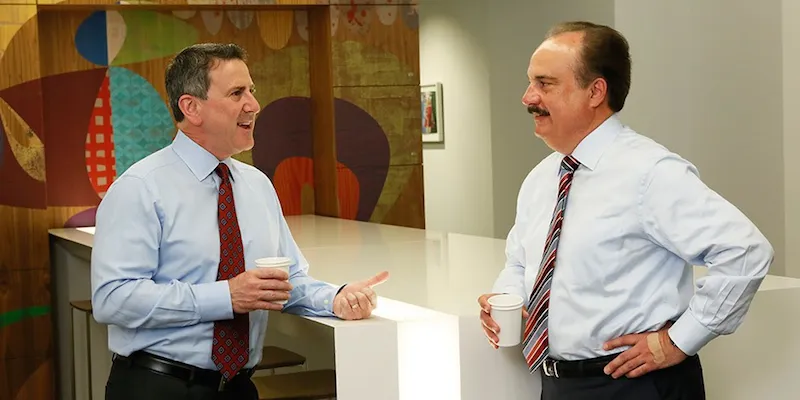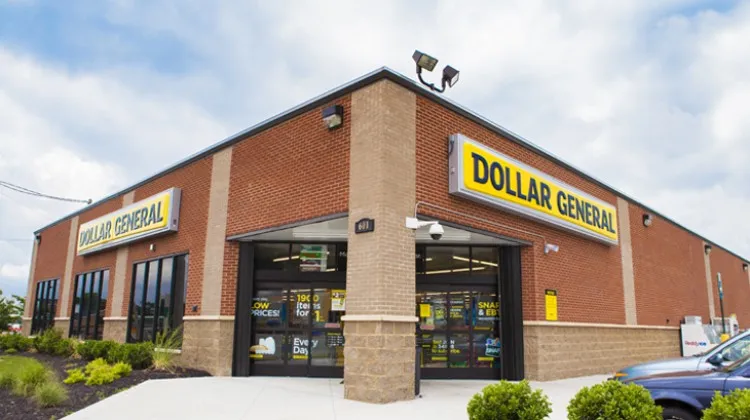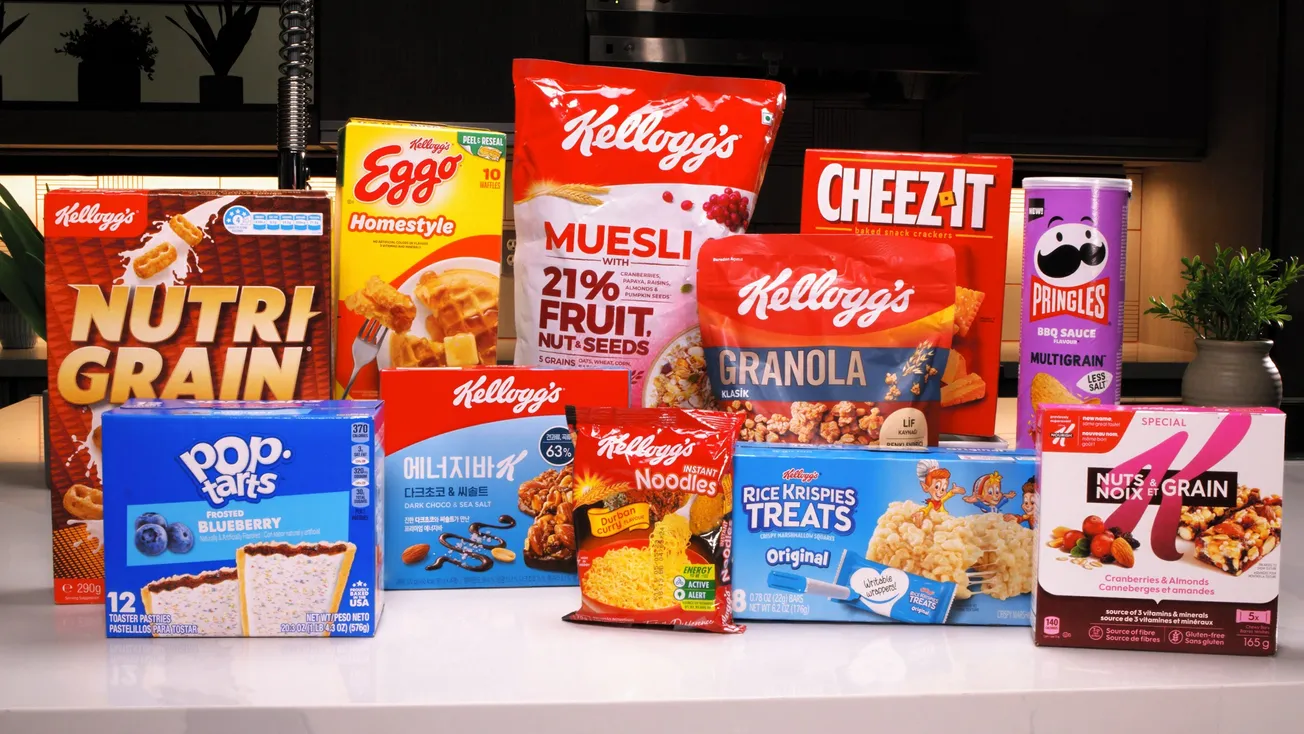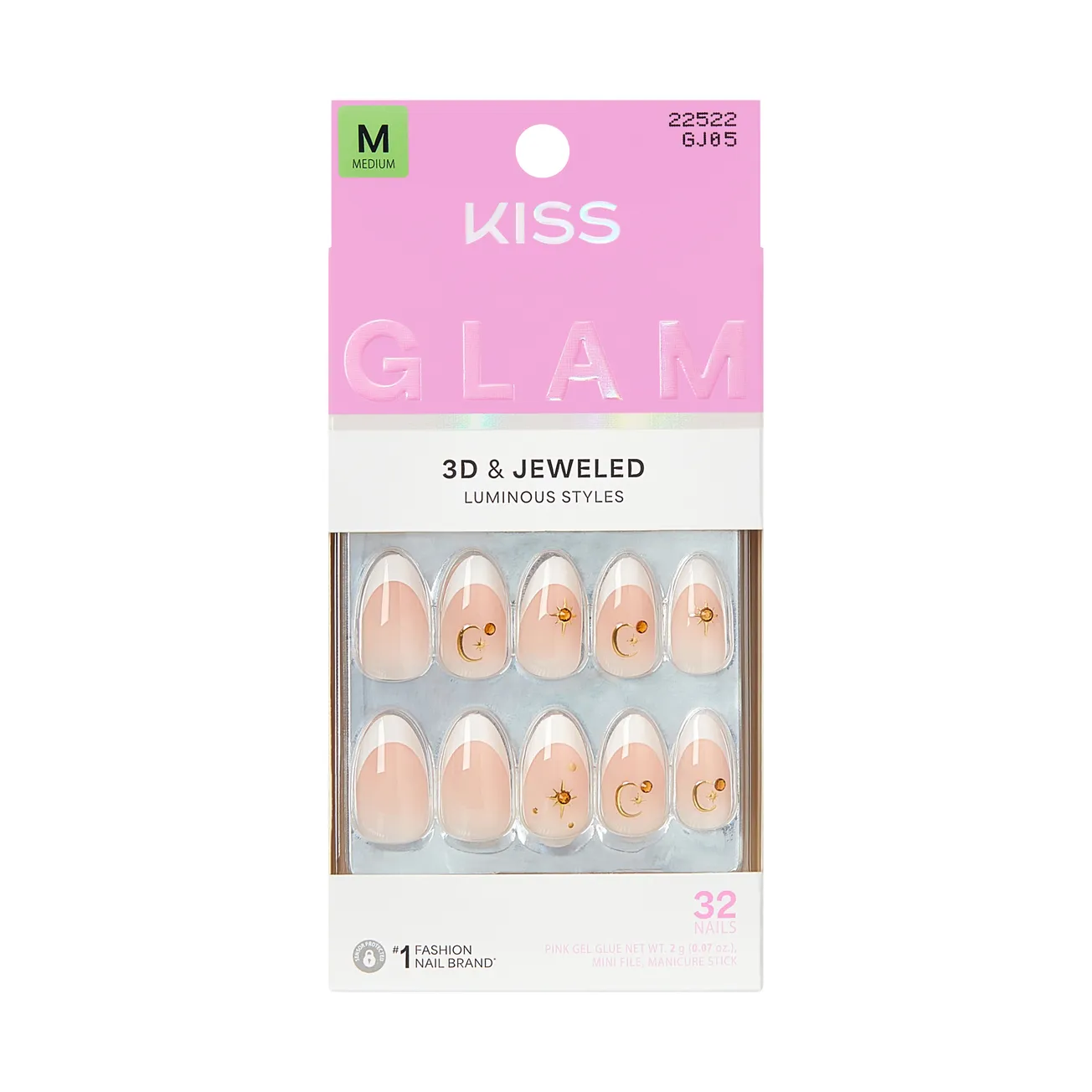Target Corp. chairman and chief executive officer Brian Cornell (left) with CVS Health president and CEO Larry Merlo.
MINNEAPOLIS — With CVS Health running Target Corp.’s pharmacies and clinics, the discount chain will be better able to focus on providing wellness products and services throughout its stores, according to Target chairman and chief executive officer Brian Cornell.
“This exciting partnership represents a significant shift in our business model and will have notable benefits for both companies as well as for consumers. In the future, Target guests will have access to CVS Health’s leading pharmacy care programs and medical clinic services as we strengthen our focus on delivering wellness products and services across the store,” Cornell said in a Q&A posted on Target’s website. “The relationship with CVS Health will also help bring new TargetExpress locations to more communities.”
Under the blockbuster deal announced Monday, CVS Health is slated to acquire Target’s more than 1,660 pharmacies and operate them as a store-within-a-store format. And going forward, all new Target stores offering pharmacy services will house a CVS/pharmacy. When the $1.9 billion transaction closes and the transition is complete, Target customers will have access to their prescriptions at Target pharmacy locations as well as at the thousands of CVS/pharmacy stores.
In addition, the approximately 80 Target Clinics will become MinuteClinic locations. Plans also call for CVS and Target to co-develop TargetExpress small-format stores, which will include a CVS/pharmacy, after the deal is completed.
Target is the nation’s seventh-largest retail pharmacy operator in terms of pharmacy count and pharmacy sales, estimated at $4.9 billion, according to Chain Drug Review‘s 2014 Annual Report of Retail Pharmacy. The only chains ahead of Target by number of pharmacies and Rx sales are Walgreens, CVS, Walmart, Rite Aid, Kroger and Health Mart. Once the transaction is completed, CVS will have about 9,400 pharmacy locations, surpassing Walgreens as the largest U.S. retail pharmacy operator.
Cornell explained that with the deal, Target will be able to redirect its investment to store departments more within its core competency while providing CVS Health’s broader pharmacy, pharmacy benefit management and health care services — in turn, bolstering Target’s overall wellness offering.
“Our current pharmacy and clinic businesses successfully drive traffic to our stores and receive favorable guest service scores. And we know guests appreciate the convenient access to health care services while making their Target run. That said, we also know wellness extends beyond health care, and we believe this deal presents Target with an exciting opportunity,” Cornell said. “Tapping an expert partner to operate pharmacies and clinics in our stores preserves its traffic-driving benefits and offers our guests access to proven, best-in-class services. Meanwhile, it gives Target greater bandwidth to focus on our strengths in product design, merchandising and marketing to grow wellness as a signature category.
“More and more, our guests want to lead healthy and active lifestyles, and they are thinking about wellness as part of everything they do,” he added. “Moving forward, Target will focus on further strengthening our wellness offerings, giving guests more ways to eat well, be active and find natural and clean-label options — areas we know they are passionate about.”
Both Cornell and CVS Health president and CEO Larry Merlo described the deal as complementary for their companies and customers.
“Target offers guests convenience, value and inspiration as they achieve wellness in their lives, with options across food, apparel, health and beauty, household products, electronics, sporting goods and more,” Cornell said in the Q&A. “Moving forward, CVS Health will supplement those efforts by operating the pharmacies and clinics in our stores. Together, Target and CVS Health will offer guests enhanced products and experiences that span the full spectrum of health and well-being.”
The co-development of the TargetExpress stores will leverage CVS’ current real estate pipeline, Cornell explained.
“CVS Health has a strong store development pipeline that includes great locations in communities ideally suited for small, flexible stores. Target and CVS Health plan to carefully evaluate and select from sites in CVS Health’s current consideration set to jointly build five to 10 TargetExpress stores with a CVS/pharmacy inside,” he said. “This will take place over a two-year period following the deal close. We have also agreed to explore a variety of future opportunities to collaborate with our guests’ needs in mind.”
Target reported that its after-tax net proceeds from the transaction are estimated at $1.2 billion, which the company expects to deploy in support of its long-standing capital priorities, including share repurchase. The company also indicated that, once the deal is finalized, it will further evaluate the business impact and related support needs at its headquarters locations.
“This agreement has been approved by CVS Health management and by Target’s board of directors and now requires regulatory approval. This process will take some time,” Cornell said. “Until then, it’s business as usual.”
Though Target will take a revenue hit by selling its pharmacy business, the company will see other key financial benefits, according to William Blair & Co. analyst Mark Miller.
“For Target, the company will receive about $1.2 billion in after-tax proceeds from the transaction, which will be used for its usual capital deployment activities, including share repurchases. In addition, the company will receive $20 million to $25 million in annual rent payments from CVS. The sale reduces the company’s annual revenue by $4.2 billion but improves overall profitability, as the pharmacy business was running at a modest loss,” Miller wrote in a research note released Monday.
“Over time, the transaction should be an incremental driver of traffic as the Target customer will get the full suite of services that CVS Health provides, including Pharmacy Advisor, Specialty Connect and Maintenance Choice,” he noted. “If Target adds 20 new customers a day, spending an incremental $30, this would drive an estimated $400 million in revenue annually, adding about 10 to 20 basis points to comp-store sales per year if this is achieved over a three- to five-year period.”
For Target pharmacy customers, CVS Health also will bring an improved value proposition in pharmaceutical sourcing through its large scale and Red Oak Sourcing generic drug venture with Cardinal Health, Miller added.
*Editor’s Note: Article updated with analyst comment.









